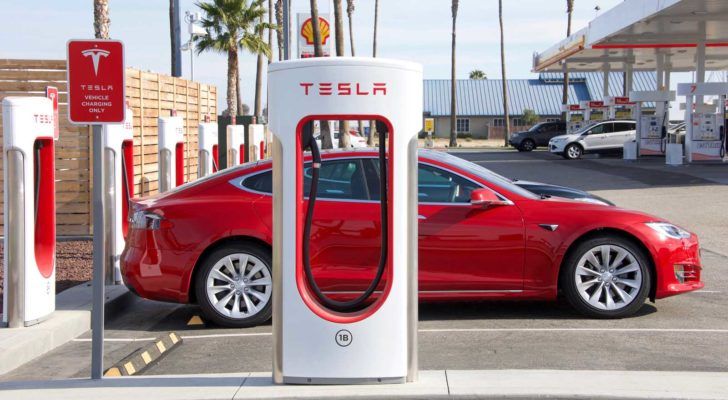Read The Full Article On: Finance
Tesla (NASDAQ:TSLA) stock is down 30% in 2019. However, in 2018, TSLA stock rose 6.9%, which was better than most of the other major auto stocks.
Yet Tesla continues to face an ongoing battle for survival.
It seems not a day goes by when someone doesn’t question whether Elon Musk and Tesla will become one of the great automotive companies of the 21st century or just another footnote in history.
I believe will TSLA will become great, and I will show why owning TSLA stock isn’t nearly as risky as owning other automakers, such as BMW (OTCMKTS:BMWYY) .
What’s the Risk Posed by Tesla Stock?
InvestorPlace contributor Wayne Duggan recently suggested that if the prices of Tesla’s Model S and Model X had not been cut, the demand for those two higher-priced electric vehicles would have been relatively non-existent.
He believes that TSLA CEO Elon Musk is doing everything possible to boost its sales, including providing free supercharging for life on Tesla’s two older models.
In Q2, Tesla lost $408.3 million, and its loss per share, excluding certain items, came in at $1.12, way above the consensus outlook of a 40 cent per share loss. .
However, on a positive note, its Q2 loss was 43% lower than its loss in the same period a year earlier. And on a non-GAAP basis, it only lost $198.5 million , 62% less than during the same period in Q2.
Moreover, the popularity of Tesla’s Model 3 continues to pave the way for a much better future for the company than for its competitors.
Here’s why.
Hybrid Is a Losing Bet
BMW CEO Harold Krueger stepped down in early July after four years in the job. While he will stay on until a successor is found, the general consensus is that Krueger failed to recognize the speed at which electric vehicles were becoming the norm around the world.
BMW had the i3, an all-electric vehicle, as early as 2013. It could have taken that bold creation and driven the rest of its German competition into the ground. Instead, it chose to focus on plug-in hybrids, not wanting to fully commit to the world of electric vehicles.
That’s understandable, since range anxiety, the fear of running out of power while driving, is the number one reason why prospective car buyers might pass on a fully electric vehicle. Given that trepidation, it’s logical that a plug-in hybrid which can get drivers where they’re going without running out of juice is appealing.
“Range anxiety is a very real problem,” said Sam Jaffe, managing director at Cairn ERA, a research firm in energy storage. “That term ‘anxiety’ is understating the despair that a driver can experience when they’re running low on electricity. Getting stuck on the side of a road because you ran out of fuel, that’s not anxiety, that’s fear, outright fear,” he added.
However, as more fast chargers are added across America, the need for a long-range electric vehicle becomes less critical. Ultimately, like the gasoline-fueled cars of today, the appeal of electric vehicles will be based largely on their total cost.
Elon Musk made a huge bet that electric was the only way to go. And now, Tesla is one of the world’s leading electric-vehicle manufacturers.
In Q2, TSLA sold 47,000 Model 3s, making it the ninth -best seller among all types of cars in the U.S. Moreover, the Model 3 had a 67% share of the U.S. electric-vehicle market in Q2. That was an impressive feat.
And in Q2, TSLA’s U.S. sales of the Model 3 exceeded BMW’s sales of its 2, 3, 4, and 5 Series hybrid sedans combined.
The fact that BMW hedged its bet on electric vehicles seems like a colossal mistake. All-electric vehicles are generally much cheaper to own than combustion or hybrid versions of the same vehicles, giving EVs an important edge.

